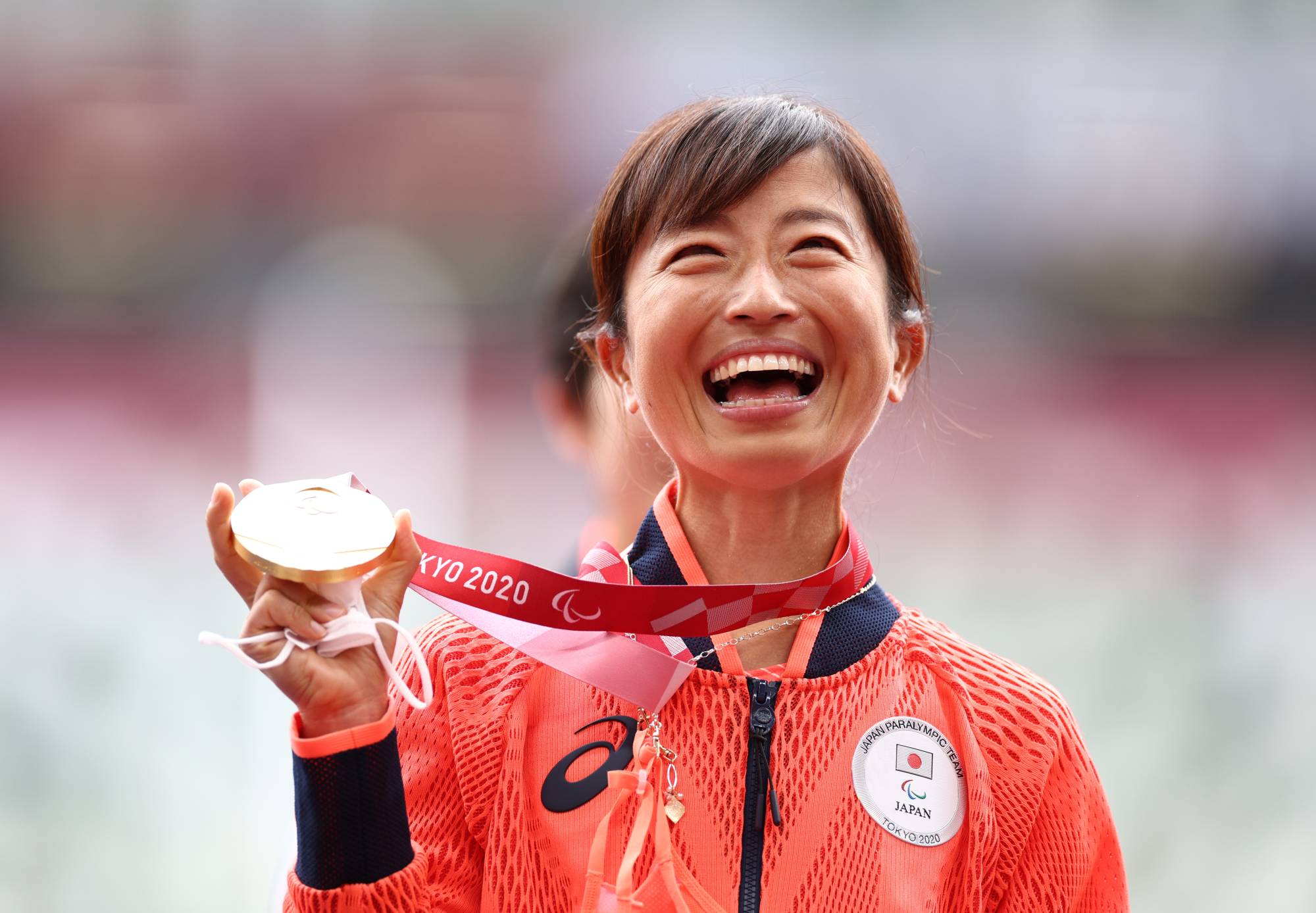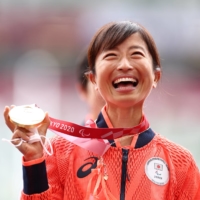The Tokyo Games brought Japan 13 more gold medals than the previous Paralympics, as a new generation of athletes contributed a swathe of titles and a few old stagers showed they still have what it takes.
Five years after the disappointment of Rio de Janeiro, where Japan never topped the podium, the host nation achieved its equal-third best gold medal total, while tallying 51 medals overall — one short of the record 52 it won in 2004.
Tomoki Sato wheeled his way to two gold medals on the athletics track, living up to the pre-Games hype to deliver the 400, 1,500-meter T52 double and improve on the two silver medals he won in 2016.
The 31-year-old chose to deflect the plaudits after winning, saying he was simply focused on performing at a high level to honor the sacrifices others had made in bringing the games to fruition during the coronavirus pandemic.
"The year (following the postponement of the games) was a struggle not only for athletes, but for many people. Athletes from each country came here determined to still perform at their peak, and with this in mind, I wanted to make sure I gave my best," Sato said.
Making history was on the agenda in Tokyo for cyclist Keiko Sugiura.
Over some five years, Sugiura went from suffering a brain injury in an able-body cycling race to a double Paralympic gold medalist, earning a spot in the Japanese cycling annals in the process.
In dominating the women's C3 cycling road race and time trial on the Fuji International Speedway circuit in her home prefecture of Shizuoka, Sugiura won Japan's first Paralympic cycling titles while becoming Japan's oldest gold medalist at 50 years of age.
Age is very much just a number for Sugiura, though, who believes one's heart and legs matter most in cycling.
"I'm very young at heart, and that's very important," she said after winning the road race. "My skin might be a little bit aged, but in my legs and my heart, I feel so young."
Visually impaired marathoner Misato Michishita was able to get a golden monkey off her back on the final day of the games.
Having run to silver at the Rio de Janeiro Paralympics, the diminutive 44-year-old had all her focus on making amends at home.
And she did, blowing the field away on a wet Sunday morning as she finished in 3 hours, 50 seconds, with a winning margin of 3 minutes, 26 seconds.
"It's like I am still dreaming and I hope that when I wake up at the Paralympic village tomorrow, it will be still real and that all this actually happened," she said.
A dream was also how Sarina Satomi described her win in the women's WH1 wheelchair badminton singles.
Having made some history as the first woman to win a Paralympic badminton gold medal on the sport's debut at the Games, Satomi added a second gold a day later, teaming up with Yuma Yamazaki to take doubles glory.
"I always aimed to become the first gold medalist, in either the singles or doubles. I am glad I managed it and I can take great confidence from that," said Satomi, the third of three double-gold winners from the host nation.
Swimmer Takayuki Suzuki was Japan's most prolific medal-winner in Tokyo. His five podium finishes, including gold in the S4 100-meter freestyle, gave him 10 career Paralympic medals in total — two gold, three silver and five bronze.
There were tears aplenty across the games as athletes put in life-changing performances on the biggest stage, and visually impaired swimmer Keiichi Kimura was among the most emotional after his win.
Aged 30 and at his fourth Paralympics, Kimura had won six medals before the Tokyo Games, but none of them gold.
When he finished second in the final of the SB11 100-meter breaststroke on the Games' ninth day it looked like that story may continue, but he changed the narrative in the 100-meter butterfly.
Touching just ahead of teammate Uchu Tomita, Kimura's effort gave him his long-awaited gold and a very tearful visit to the top step of the podium.
"I don't know what the medal looks like, but when I heard the Japanese anthem being played, I realized I had got the gold medal, and the tears just came flooding. It was extremely emotional," he said.
The waterworks also flowed when Shingo Kunieda, a 45-time wheelchair tennis Grand Slam winner and the most high-profile member of Japan's Paralympic team, finally returned to the top step of a Paralympic podium.
The 37-year-old won two singles gold medals in the past, but went without in Brazil in 2016 when he was knocked out in the quarterfinals, a shock exit for the man who is, without doubt, the greatest of all time.
"I kept telling myself I can do it and that I am the best," he said after the victory ceremony. "But there was a part of me that really doubted myself. I suffered setbacks in Rio, so I didn't imagine that I could have another gold medal around my neck. It feels so different from Beijing and London."




